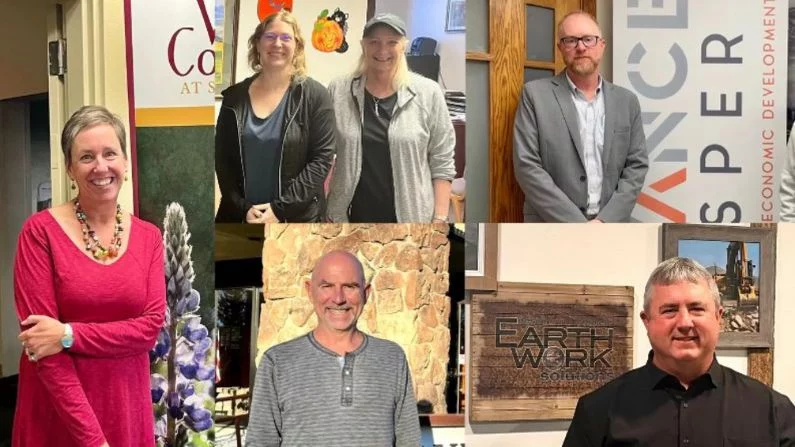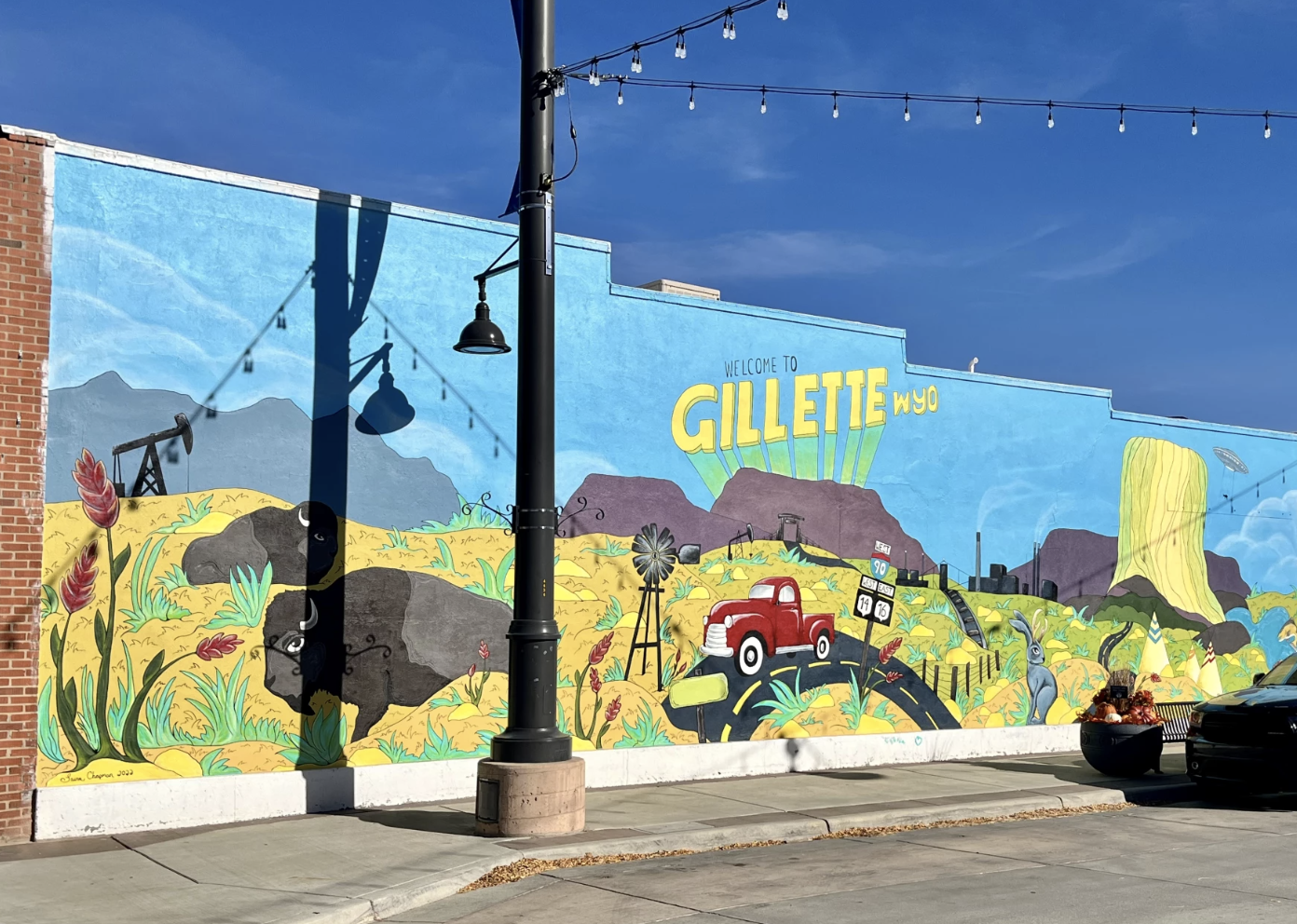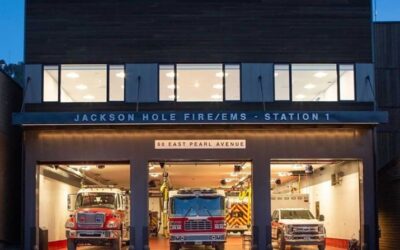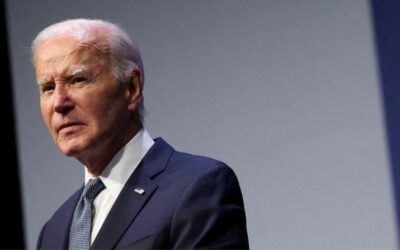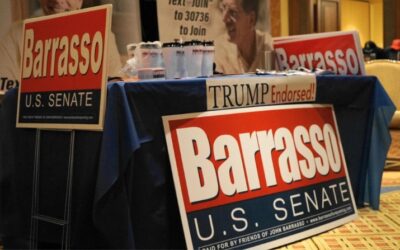This story comes through a content-sharing partnership with Wyoming Public Media.
Some of Wyoming’s largest cities are at a crossroads as the state looks to diversify its economy and tax revenues. One of them, Casper, is hours from any out-of-state metro area and was uncharacteristically warm and quiet on a recent Thursday in October.
Justin Farley, CEO of Advance Casper, the local economic development alliance, said a lot of his job is convincing new companies to see Natrona County’s appeal.
“We really have to be self-reliant,” he said. “We’re a very industrious, extraordinarily talented workforce. But the cycles, the boom-bust cycles, we just really want to try to find a way to smooth that out a little bit for people.”
Farley wants Casper to become a hub for manufacturing, aerospace and science. He also said it’s important that small businesses and restaurants continue to fill storefronts downtown.
“If we like it, and it’s something that we want, our private sector generally steps up and fills that void,” Farley said. “It’s all up to us.”

The Better Together Mural in Casper contains the names of over 1,200 community members and essential workers. (Will Walkey/Wyoming Public Media)
But Casper leaders are not the only people across the state that see a need for new ventures. Governor Mark Gordon is focusing on trying to attract talented workers here, and locals throughout the state want the same thing.
“Our kids that grow up here and get educated here, we’d like to have them back in the workforce and keep our families together and not have them leaving to go find tech jobs somewhere else,” said Tyler Miller, president of a heavy equipment construction company in Gillette.
“I’ve just seen so many people who had great jobs now don’t have it, and they don’t have the insurance,” said former railroad worker Joanne Hanson in Gillette.
Mayor of Douglas Rene Kemper said she wants to diversify her town’s revenue streams to help pay for shortfalls in local housing, water supply and education programs.
“Our hotels, when they’re full, they’re full of the guys working on the wind farms, coal bed methane workers, oil field workers, they’re not your tourists,” she said. “They’re not going to go down to the shop and buy a couple T-shirts.”
Heading north from Casper on I-25, a herd of several hundred sheep interrupted travelers driving through downtown Kaycee. Many people stopped to watch, wave at the ranchers and say hello to their neighbors.
It’s this version of Wyoming, featuring the charm of main street, that people still love. Amy Albrecht has lived in Sheridan for 30 years and echoes those feelings.
“I think the thing that makes me the happiest other than just looking at the mountains every day is that I really feel like in this state you can make a difference,” she said. “You can actually make real change. Because you know your legislator, and if you don’t, you could find him or her pretty quickly.”
Albrecht works for the Center for a Vital Community, a local nonprofit affiliated with Sheridan College. She talks to a lot of businesses and members of the public who share her values. Many of them are worried their home state is becoming too popular.
“When you feel like you have something that’s special, you want to hold on to that,” she said. “What does that mean? You don’t get to shut the gate behind you.”
Property taxes, election integrity and green energy were all mentioned during the tour. People complained about inflation, the federal government and immigration at the U.S.- Mexico border. But perhaps the most divisive issue was the perception that local communities are changing partially because of people moving in from out of state.
“The problem, concern, I have, and I’ve seen it before, is when they move here, they don’t necessarily leave what they didn’t like there,” said Gillette welder Dave Collins. “They sometimes try and reinvent it here.”
“I’m not one that wants to attract a lot of diversity into our state,” Tyler Miller of Gillette said. “I think our state is conservative and we enjoy our neighbors and we enjoy doing the things that we do in Wyoming, we don’t want to bring in a lot of change.”
Issues brought up about newcomers include new money driving up housing prices, changing political values and a loss of community character. Meanwhile, residents were more welcoming to new voices.
“We are seeing some people moving in from other states. When I asked them why they chose to come here, they said they wanted this small town feel,” said Douglas community development director Clara Chaffin. “Not a single one of them has said, ‘I moved here and now I want to change Wyoming.’ Every single one of them has said, ‘I want to be here because I like the way Wyoming is.’”
“I’m probably a lot more liberal than other people that reside in this state. And so for me. I struggle with some of the conservative viewpoints and some of the legislation that comes up as a result of that,” said Douglas resident Chaz Kokesch. “People like me I feel just don’t have much of a voice because there aren’t enough of us.”
Many people didn’t have much to say specifically about their state legislator, though several town officials would like state officials to provide more revenue for education and health programs.

A tourist attraction in Douglas, the self-proclaimed “Jackalope Capital of the World” (Will Walkey/Wyoming Public Media)
The drive from Gillette to Douglas, the final leg of the trip, is quintessential Wyoming — full of windmills and trains full of coal, oil rigs and cattle ranches, herds of pronghorn, wide open spaces and very few people. Robert Short, a commissioner in Converse County, had a lot to say about Wyoming’s future.
“We want to see good paying jobs, we want to see good growing communities, we want to see good, vibrant healthy discourse, and we want nothing to change,” he said. “And therein is the rub. Because those other things can’t happen without a willingness to change a little bit.”
The town where Short is from, Glenrock, may be getting a next-generation nuclear reactor in the coming decade, which he’s excited about. He also wants to see more electric vehicle charging stations, innovative farming techniques and other newer industries grow in the state. But most of all, Short wants to see more willingness from politicians to try new things.
“We’ve had it really good here,” Short said. “Coal, oil and gas and uranium have paved the way for a long time, we cannot continue to saddle them with more and more of the burden.”

